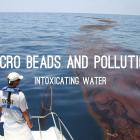How do you think of waste? As I understand it, waste is something that is no longer useful and, for one reason or another, needs to be discarded. However, isn’t it intrinsically wasteful to intend for anything to be eventually useless?
As I write this article, I can’t help but notice that eventually all of the materials in front of me will be classified obsolete. In a matter of time, they will all be thrown into the nearest receptacle for collection and, because of where I live, 50% of the material will be diverted for reprocessing, while the remaining 50% will be buried in a stockpile to never be seen again – or at least that’s what we hope.1
We’ve all heard the famous saying ‘you are what you eat’, but how about ‘you are what you use’?









